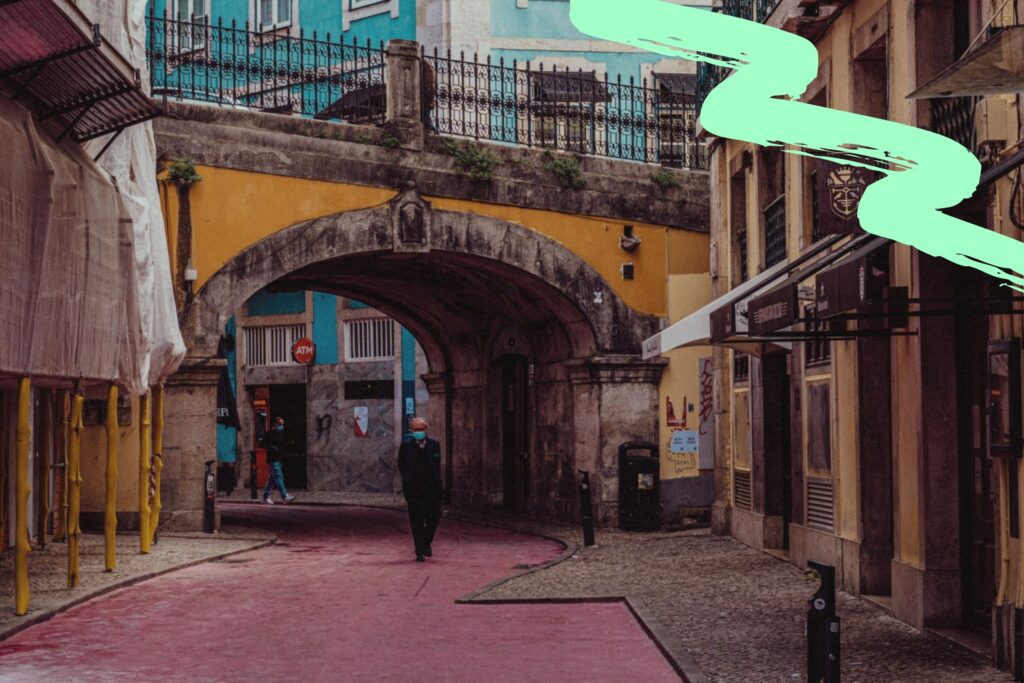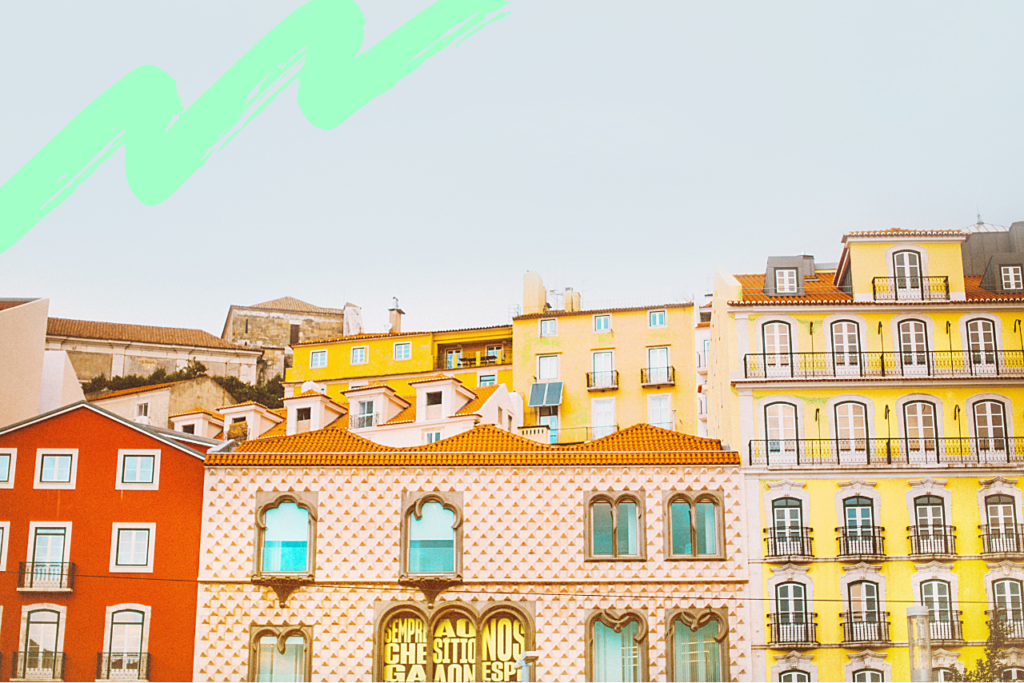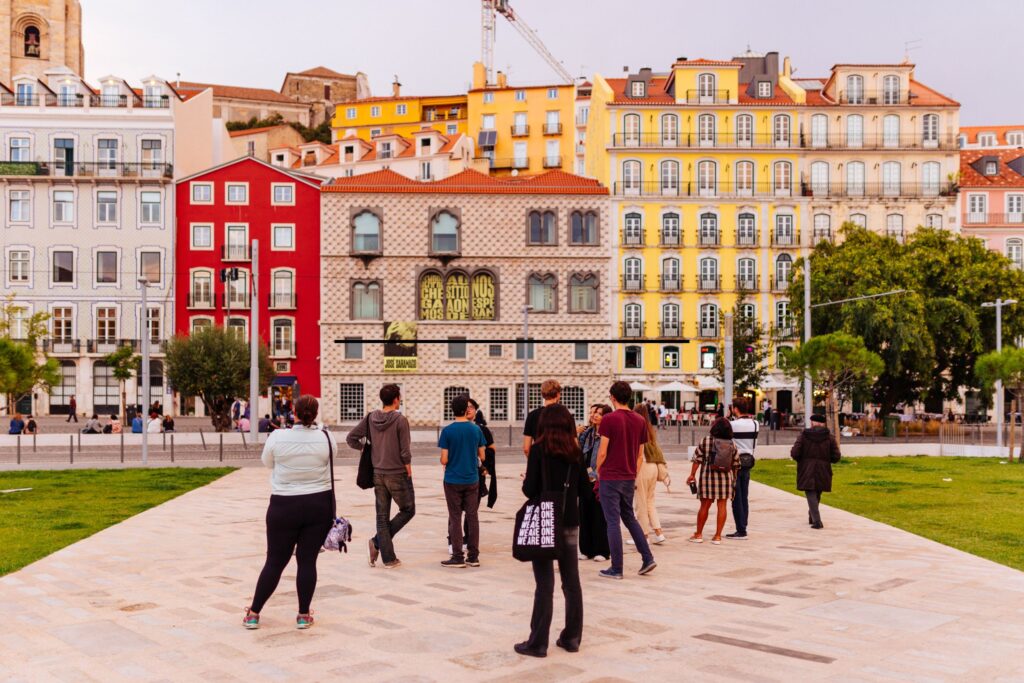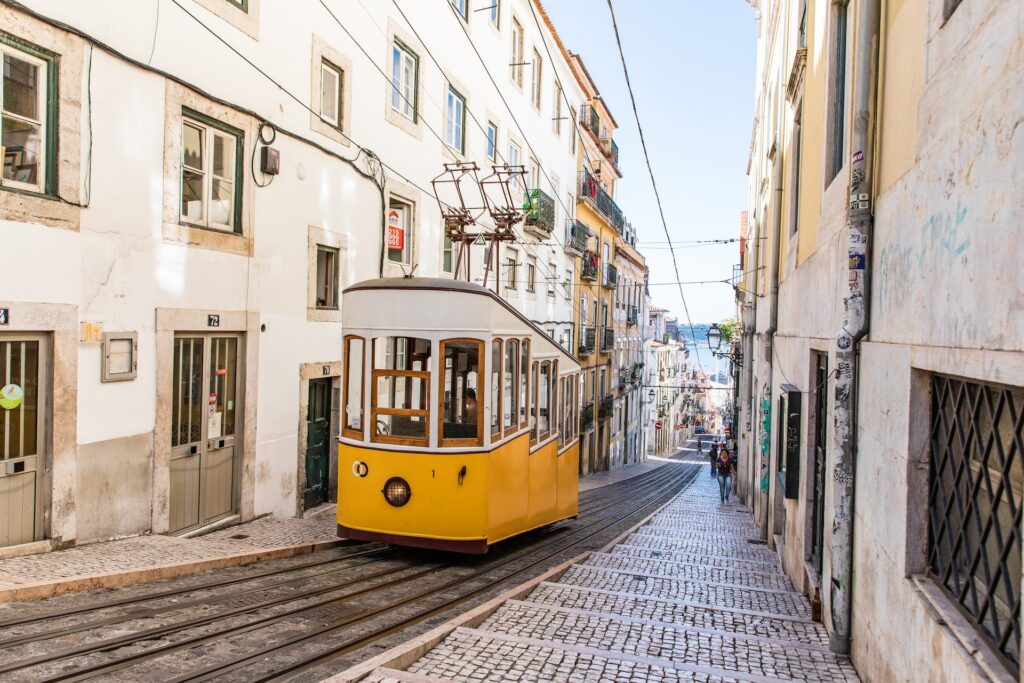Ideal for citizens of the world with restless feet…
Remote workers rejoice! 2025 has been a welcoming, inclusive year for those who prefer to work in a transient office and ever-changing time zones.
This is because a whole host of popular global destinations, keen to place the pandemic firmly in the rearview mirror and find new ways to welcome in visitors, are introducing so-called ‘digital nomad’ visas to encourage upwardly mobile professionals to call their country home, at least for a little while.
One such place is Portugal, and more specifically, its capital Lisbon. It’s easy to see why the place might appeal to remote workers armed with a laptop and a taste for adventure; Lisbon boasts a reputation as being one of the best places for digital nomads to live in Western Europe, with a low cost of living, fantastic local food, loads of sunshine and a super fast internet (20th in the world, if you’re asking).
What’s more, the socialist identity of the country and the openness of its citizens lends itself to a convivial way of life which welcomes in remote workers with enthusiasm.
Should you be planning on moving to the Portuguese capital and make the most of the laid-back life in the City of Seven Hills, then first, you should read these; our top tips for British digital nomads moving to Lisbon, IDEAL for citizens of the world with restless feet.
The Lowdown On The Digital Nomad Visa
If you’re a member of the European Union, you don’t need a visa to visit Portugal. But if you are in the country for longer than 183 days you need to register as a resident. If you’re from outside the European Union, check the applicable regulations that apply to where you’re from, though in general, Portugal is very amiable to foreign residents making it their home.
Of course, the UK’s exit from the European Union has rather complicated this, but the introduction of those aforementioned digital nomad visas may well simplify the process for some. Fortunately, there’s a wealth of useful guidance on Portugal’s Digital Nomad Visa requirements online, though here’s the basics…
Portugal’s digital nomad visa program (officially called the D8 Visa) has been making waves since its launch in October 2022, and it’s become quite the game-changer for remote workers looking to swap their home office for a Portuguese café with an ocean view.
Now, here’s where it gets interesting – you’ve got two flavours to choose from. There’s the short-stay visa, which gives you a lovely year to soak up all that Portuguese sunshine while you work, perfect for testing the waters before making any big life decisions. Then there’s the residency permit option, which is a bit more serious – lasting two years initially and renewable for another three. Should you fancy sticking around even longer, after five years you can apply for permanent residency and even Portuguese citizenship (though you’ll need to brush up on your Portuguese to A2 level – nothing too taxing!).
The financial requirements have had a bit of an uptick since the early days – you’ll now need to show a monthly income of €3,480 (that’s four times the Portuguese minimum wage, if you’re keeping track) plus have at least €10,440 sitting pretty in your bank account. Whether you’re employed by a company abroad or freelancing with international clients, you’ll need to prove your work is genuinely remote and based outside Portugal.
But that’s not all; having the Portuguese digital nomad visa allows you to enjoy visa-free travel across the Schengen Area, which is particularly handy for Brits navigating post-Brexit travel restrictions. You’ll also get access to Portuguese public services, including their excellent healthcare system (with proper insurance, naturally), and there’s even the possibility of bringing the family along if you opt for the residency permit route.
The application will set you back €93 initially, with another €170 when you apply for your residence permit once you’re in Portugal. Processing typically takes about 60 days, and if you’re planning to bring your spouse and little ones along, expect the income requirements to bump up by 50% for a partner and 25% per child. Exciting times, indeed.

Other Visa Options
Should you want a longer stay, be looking to establish deeper roots in the country, or don’t quite tick the right boxes for the digital nomad visa, then you might want to consider a few other routes that Portugal has on offer.
The Golden Visa (Though It’s Had A Bit Of A Makeover)
Portugal’s Golden Visa program has undergone quite the transformation in recent years. The days of buying a lovely property in Lisbon or Porto to secure your residency are, unfortunately, behind us – that route was scrapped in October 2023, much to the disappointment of many aspiring Portuguese property owners.
But don’t despair! The program is very much alive and kicking, just with a different focus. These days, you’re looking at investment options starting from €250,000 for cultural heritage donations (supporting the arts, how lovely!), or €500,000 for qualifying investment funds. There’s also the option to create at least 10 jobs or invest €500,000 in scientific research – perfect if you’re the entrepreneurial type.
The perks remain rather attractive: you get residency rights that allow you to travel freely throughout the Schengen states, and you only need to spend an average of seven days per year in Portugal (14 days every two years, to be precise). It’s also brilliant for family reunification, as you can bring along your spouse, children, and even parents under certain conditions.
After five years, you can apply for permanent residency or Portuguese citizenship, though there are rumblings about potentially extending this to 10 years for future applicants – though that’s still just talk at this stage.

The NHR Program (Now In Its 2.0 Version)
Here’s where things get a bit more complicated. Portugal’s Non-Habitual Residence (NHR) program, which was an absolute gem for retirees and professionals looking to reduce their tax burden, came to an end for new applicants in January 2024.
However, it’s been replaced by something called IFICI (Tax Incentive for Scientific Research and Innovation), which many are calling “NHR 2.0.” The new version is rather more restrictive than its predecessor – gone are the days when retirees could easily qualify for tax breaks on their pensions. The focus has shifted decidedly towards highly qualified professionals working in scientific research, innovation, and technology sectors.
If you do qualify for the new regime, you’ll still get that attractive 20% flat tax rate on Portuguese income and exemptions on most foreign-sourced income for a 10-year period. But the eligibility criteria are much stricter, and frankly, it’s not the retirement-friendly option it once was.
For those who managed to secure the original NHR status before the cutoff, you’ll continue to enjoy the benefits until your 10-year period expires.
Other Routes Worth Considering
For longer-term stays, there’s also the D7 Passive Income Visa (perfect for retirees with stable income) and the D2 Business Visa for entrepreneurs looking to set up shop in Portugal. Similarly to Canada’s Startup Visa or Estonia’s e-Residency programme, the Portuguese D2 route is designed to attract innovative business minds, though with its own unique requirements and benefits. Both can serve as stepping stones to permanent residency and eventually citizenship, should you fall head over heels for Portuguese living – which, let’s be honest, is rather easy to do.

Medium Term Stays
Speaking of a medium term or longer stay, finding somewhere to live in Lisbon can be challenging. Lots of flats have been taken over by AirBnb, which could work to your advantage if you’re looking for somewhere temporary and transient at first, prior to finding somewhere to settle.
Behere is a useful app that links up folk looking for medium length stays with landlords of verified, serviced apartments, as well as co-working spaces, gyms and other amenities ideal for newbies in a city. They have a strong presence in the Portuguese capital.
Nomadix and Spotahome are also platforms offering rentals for medium length stays.

Where To Live
In terms of where you should be looking to settle, Lisbon is a diverse place, with a whole host of neighbourhoods catering to different needs and types of people. Alcantara is a great area for digital nomads, a little cheaper on the rent and cost of living than more central neighbourhoods, and is home to LX Factory, which boasts hipster cafes, shops and one of the city’s best coworking spaces. It’s also served by the metro (on the red line) which makes jaunts into other areas as easy as custard pie.
Alfama is also a popular neighbourhood for digital nomads, with the widest range of accommodation on offer. It’s connected to two Blue Line Metro stations, Terreiro do Paço and Santa Apolonia, the latter of which offers a launchpad to the rest of Portugal, should you be wanting to explore further! Alfama also boasts perhaps Lisbon’s most beloved landmark, Sao Jorge Castle, which sits atop the hill of the same name, and offers the finest views of the city and River Tagus.
Read: The best restaurants in Lisbon

Healthcare
Portugal’s healthcare system is one of the best in the world, and was ranked 12th globally by the World Health Organisation at the start of the millennium. The good news for folk moving to Lisbon is that healthcare in Portugal works much like the NHS. Named the Serviço Nacional de Saúde (SNS), accidents and emergencies, consultations and standard treatments are generally free, or at least, heavily subsidised.
For those under 18 and over 65, the service is completely free of charge, but a small fee is required for GP appointments and prescriptions. Dental work is generally free, too. You’ll have to register at your local medical centre in Lisbon once you’ve confirmed residency. For temporary stays, a European Health Insurance Card, which you can apply for via the NHS for free, can be used to gain access to healthcare.

Meet Other Nomads
There’s a huge digital nomad community in Lisbon, and it’s both one of the most sociable and network-friendly scenes around. You can meet fellow digital nomads at Outsite Lisbon, or at one of the many brilliant coworking spaces in the city. Aside from the aforementioned LX Factory, there’s also the Second Home workspace, perched on top of the Mercardo da Ribeira, which is a firm favourite of ours.
The Lisbon Digital Nomads group on Meetup is another great platform for finding fellow freelancers and creatives. All in all, it’s an incredibly hospitable city for those who love to do work remotely. Lisbon’s superb cafe culture certainly helps that; the Copenhagen Coffee Lab in Principe Real and Comoba in Cais do Sodre are two brilliant places to do work and enjoy some superb coffee and pastries.
The Bottom Line
Whether you’re a copywriter or computer programmer, if you have an online-based job and enjoy working remotely, then Lisbon is a brilliant place to be a digital nomad. With Portugal’s digital nomad visa one of the world’s most established, might the second half of 2025 be the year you spread your wings and fly somewhere new and exciting? We think that Lisbon might be just the ticket.





